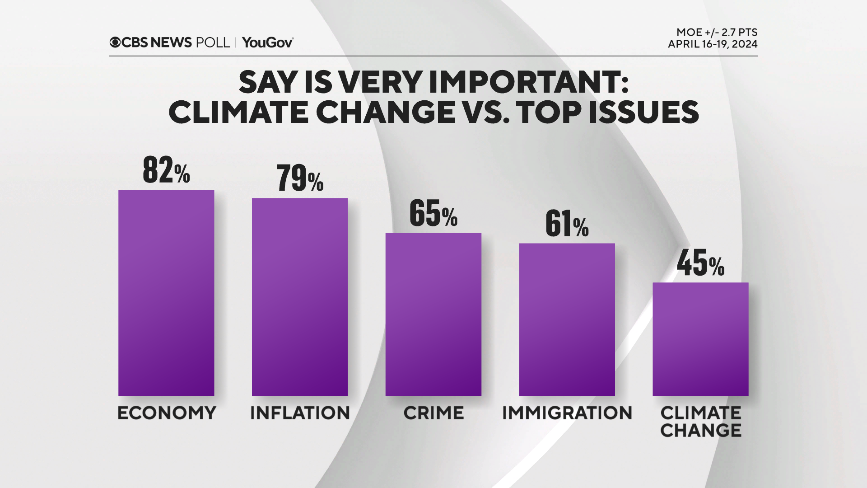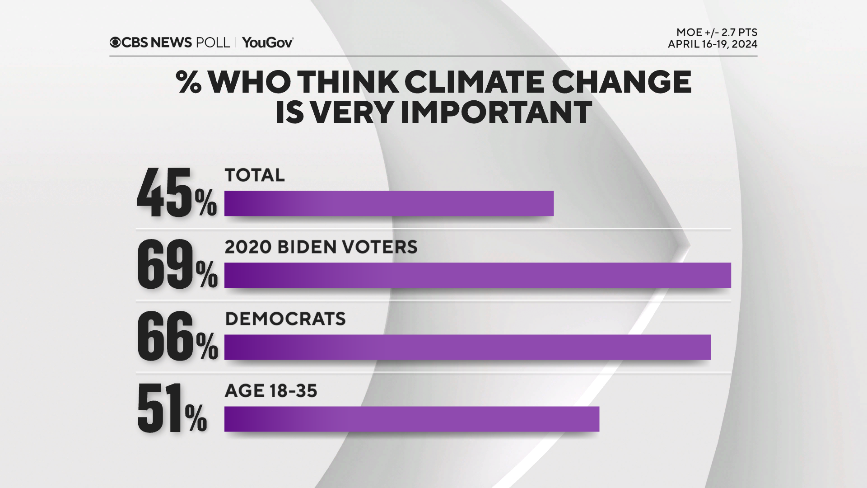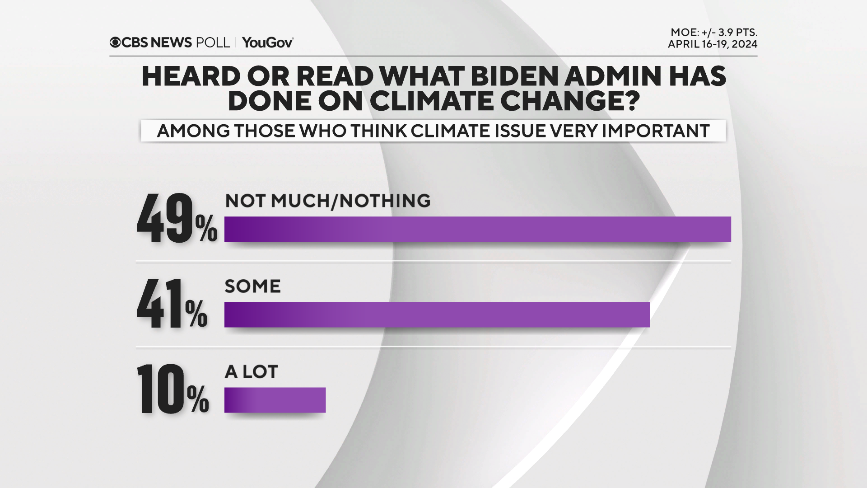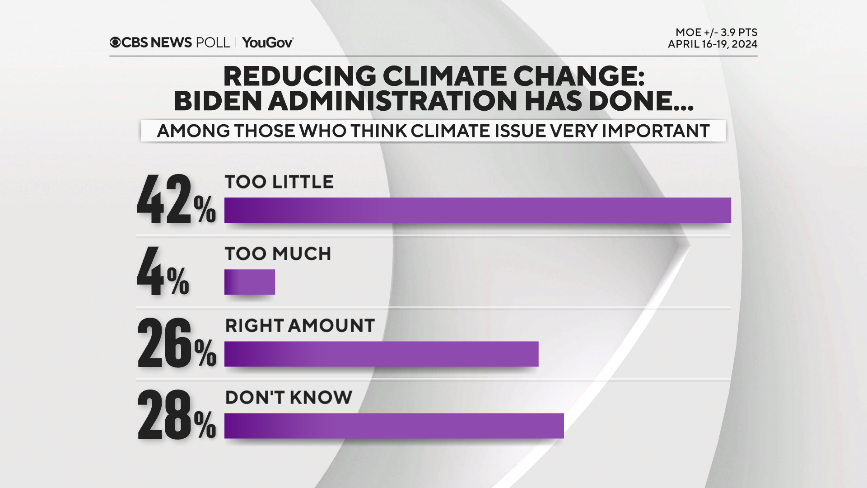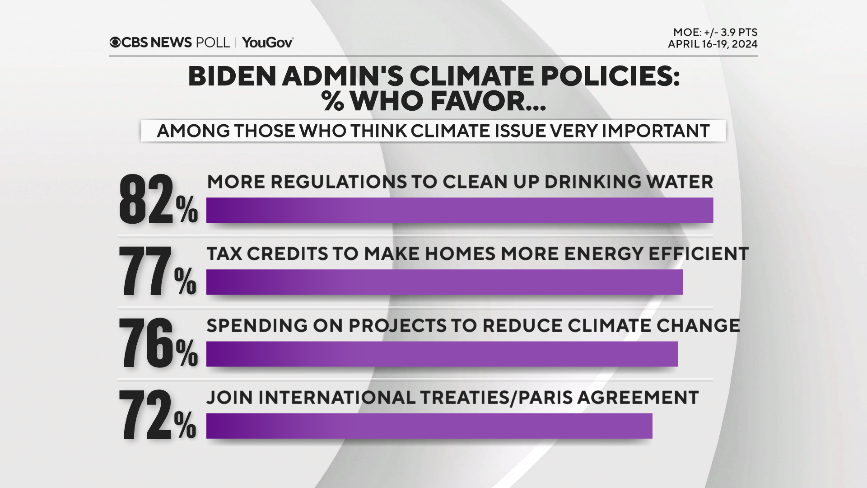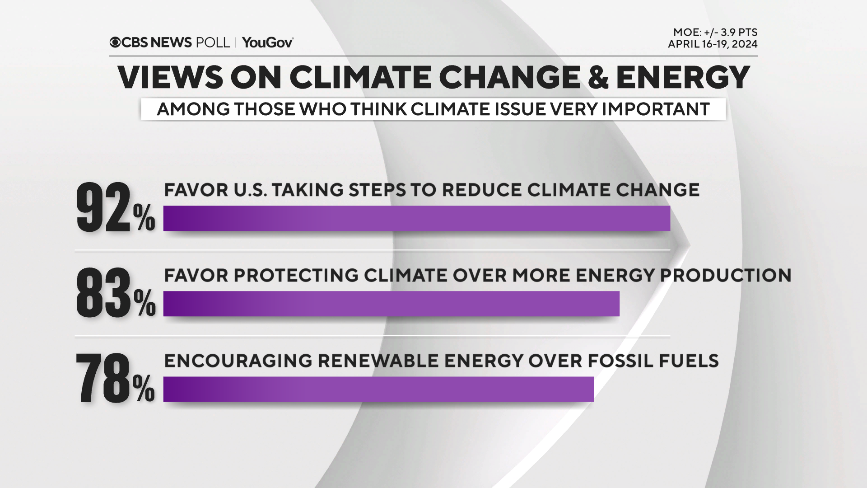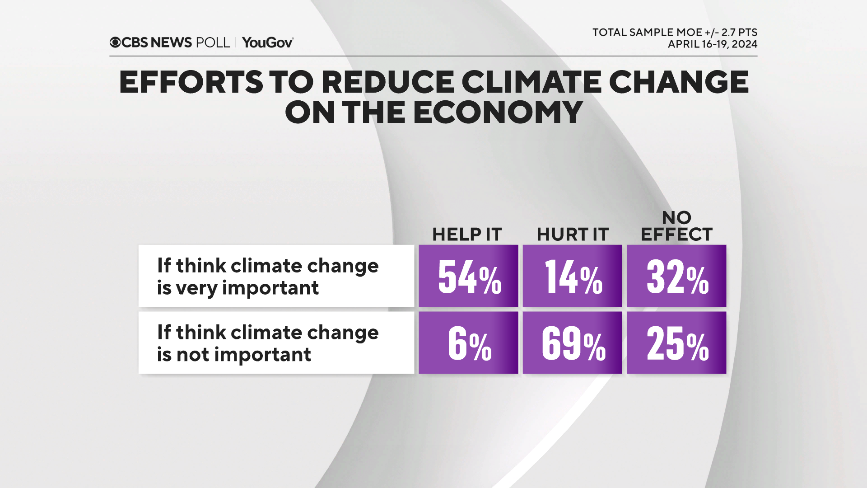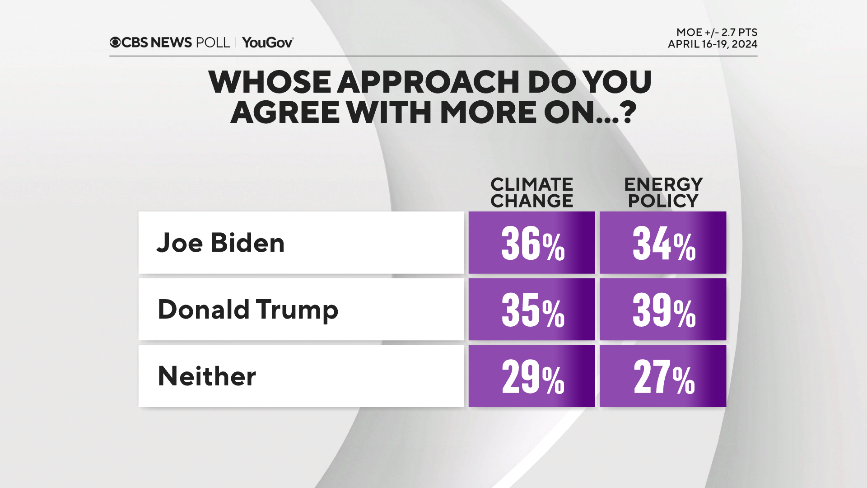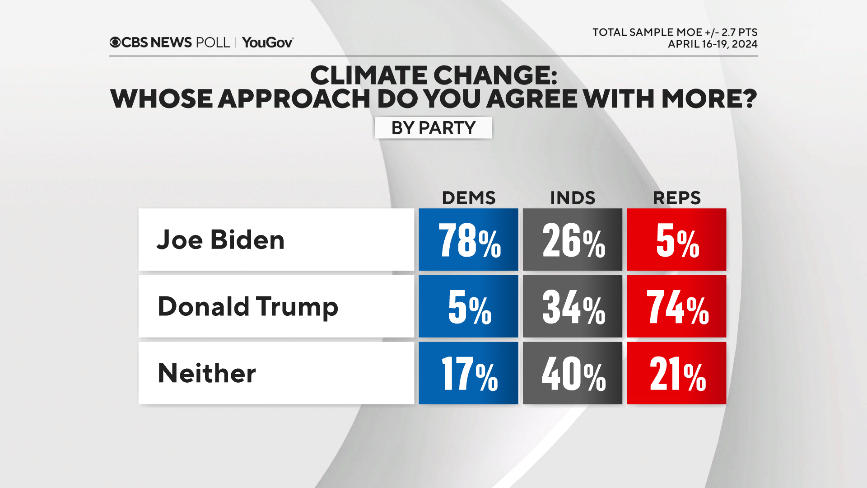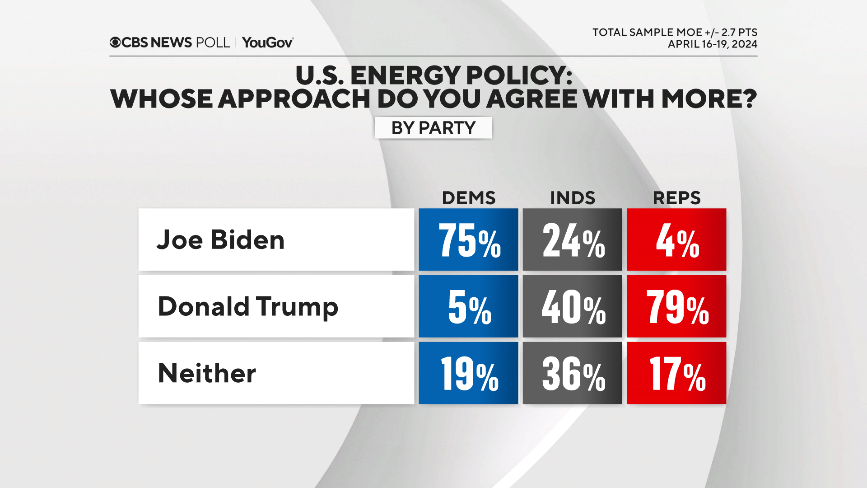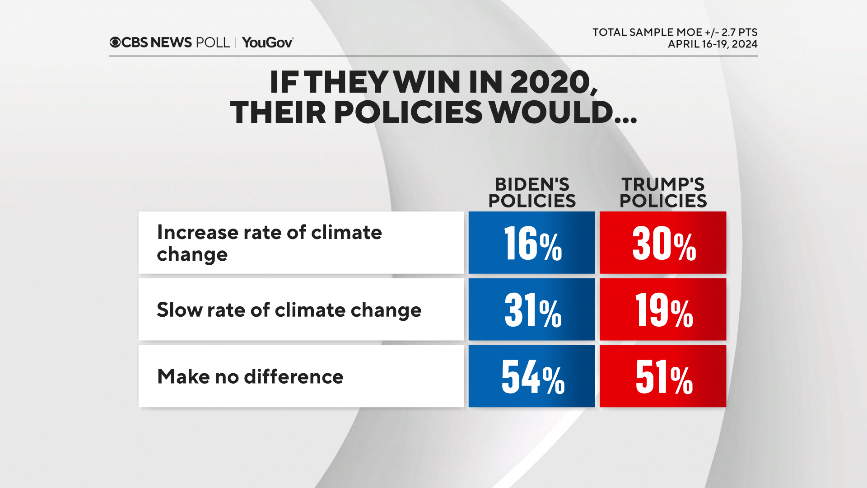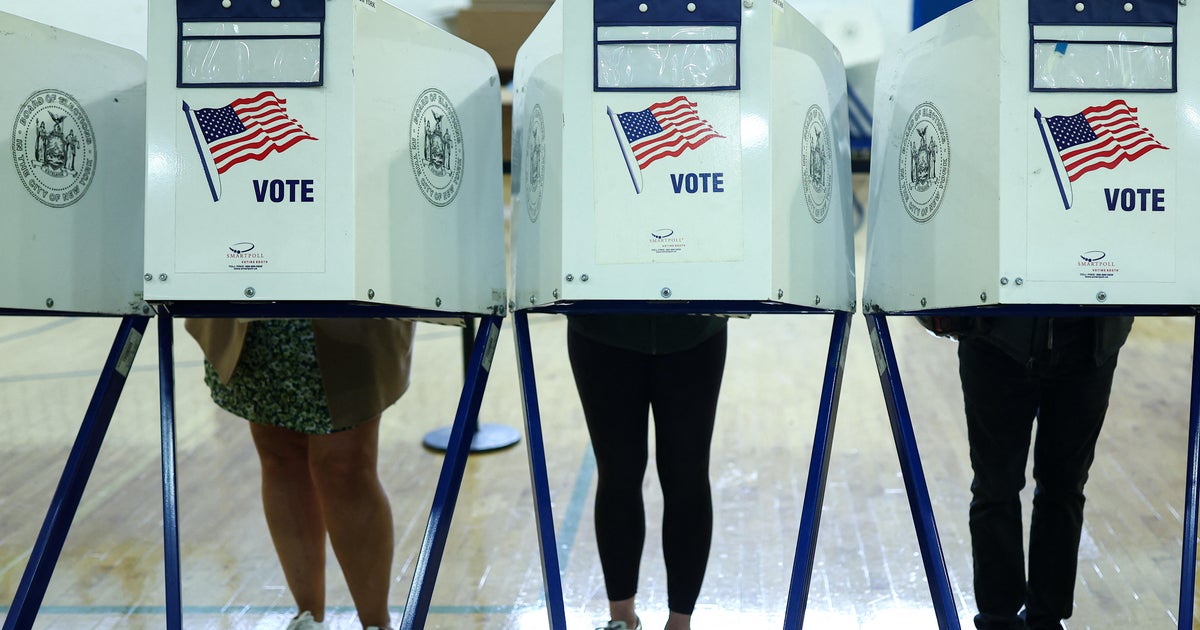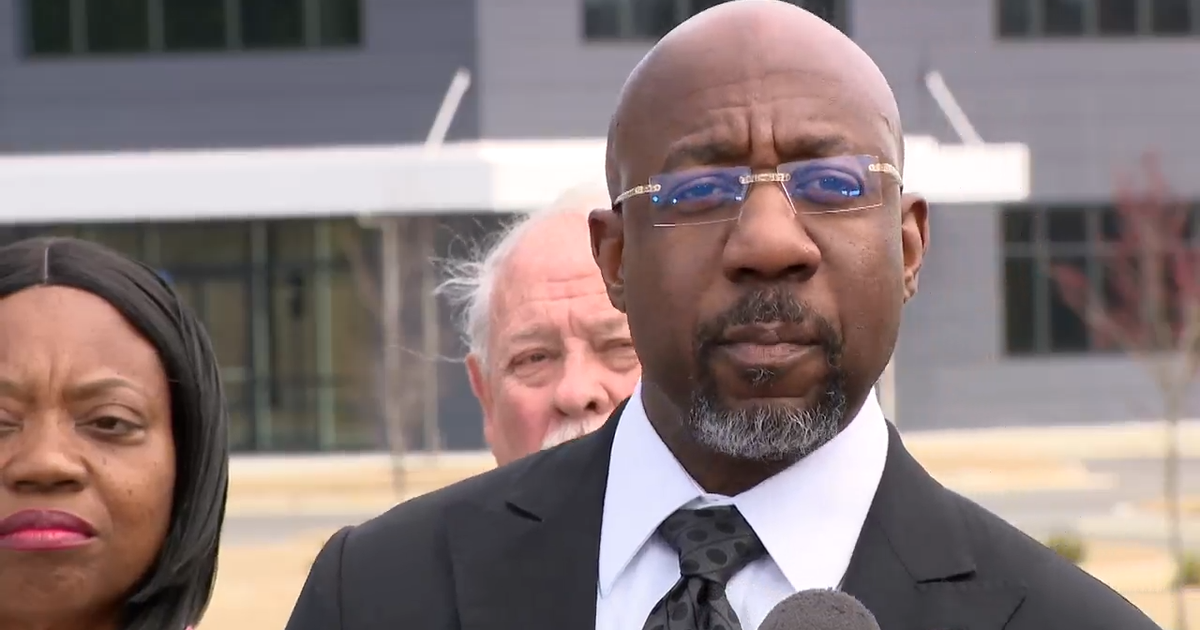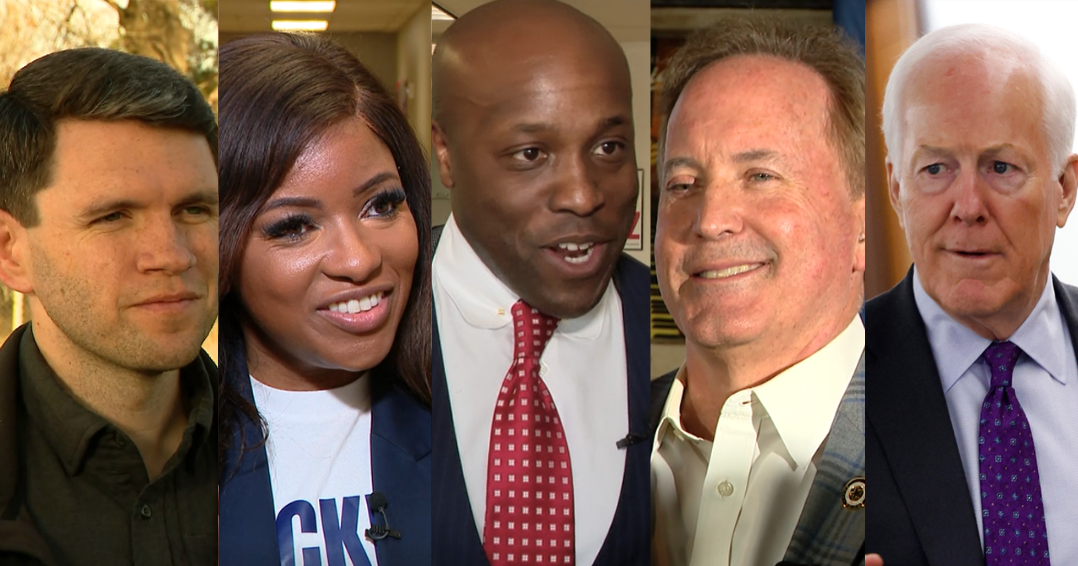Few have heard about Biden's climate policies, even those who care most about issue — CBS News poll
President Joe Biden made addressing climate change a key issue in his 2020 campaign. Three years into his presidency, what do those who care about the issue most think about what he's done? How much do they know?
Few Americans say they've heard a lot about what the administration has done on climate change. That extends to those in the president's own party and to those who rate the issue of climate change as very important. Half of them have heard little or nothing at all about what the administration has done.
And perhaps as a result, those who prioritize climate change are feeling somewhat unsatisfied — more of them feel the president has done too little, rather than the right amount on trying to reduce it.
But they do like the Biden administration's policies when they hear about them.
Climate change: An issue important to Biden's base
Climate change is not the most important issue for Americans overall; it trails economic issues and matters like crime and immigration. But most Democrats, liberals, those who voted for Mr. Biden in 2020 and many younger people place a lot of importance on the issue. These groups will be crucial to Mr. Biden in November.
Just 10% of Americans who say climate change is a very important issue have heard or read a lot about what the Biden administration has done so far to deal with it. And when evaluating the Biden administration, many think it has done too little to address it.
When presented with some of the Biden administration's climate change policies, a majority of those who place a lot of importance on climate change — from enhanced regulations, to reducing toxic chemicals in drinking water, to tax rebates for buying an electric vehicle — favored the policies.
Even people who feel the administration has done too little on climate change support these policies. So this may be more about Mr. Biden needing to get his message out there than having to convince this "climate constituency" — those who call the climate issue very important — of the substance of his policies.
What is the "climate constituency" looking for?
Nine in 10 of those who call the climate issue very important support the country taking steps to stop or slow the rate of climate change, and if they had to choose, they overwhelmingly would prioritize protecting the earth's climate over energy production.
And most agree with the administration and Democratic leaders that efforts to reduce climate change would help the economy, not hurt it, putting them at odds with those who place little or no importance on the issue.
2024 presidential candidates and climate change
While this "climate constituency" would like to see Mr. Biden do more, they do prefer his approach to climate change and energy policy to former President Donald Trump's. It's the public at large that is not convinced, and that adds up to Mr. Biden running about even with Trump among people who are asked whose approach to the issue they agree with more. More than a quarter pick neither.
Americans who think the issue of climate change is very important and those who want an energy policy that moves away from fossil fuels in favor of renewable energy sources prefer Mr. Biden's approach on both climate and energy, while those who place little importance on climate change and who want to encourage greater production of fossil fuels favor Trump's approach.
This cuts heavily to partisanship as well, though independents — who think efforts to fight climate change will hurt rather than help their finances — lean more towards Trump's approach than Mr. Biden's.
Looking ahead, there's skepticism that either candidate can do much about climate change if elected in November.
On balance, more think Mr. Biden will slow the rate of climate change and more think Trump will increase it, while half don't think it will make any difference, regardless of who wins in 2024.
Americans with a more fatalistic view on climate change — who think humanity can't do anything about climate change or who think it doesn't exist in the first place — are the most likely to say the election will make no difference.
This CBS News/YouGov survey was conducted with a nationally representative sample of 2,230 U.S. adult residents interviewed between April 16-19, 2024. The sample was weighted according to gender, age, race, and education based on the U.S. Census American Community Survey and Current Population Survey, as well as past vote. The margin of error is ±2.7 points.

